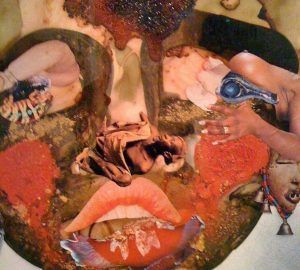Petal Samuel in Public Books:
 Many black scholars—especially those who study black life, history, and culture—would recognize an uncomfortable and familiar situation that epitomizes the trials of coming through the academy: the moment when a colleague, professor, or student questions whether or not our work truly accords with the standards and conventions of our discipline, of the academy itself. We are subtly and overtly asked if our analyses are truly objective, if our methodologies are sound, and if our subject matter is accessible with wide enough appeal. We know that words like “rigor,” “breadth,” “accessibility,” and “objectivity” in traditional academic disciplines often encode institutional racism, and that the very methodologies and analytical practices we’re urged to master were never meant to accommodate the study of black life. Yet, to depart from academic orthodoxies can have real consequences: isolation, lack of support, getting passed over for opportunities and honors, poor evaluations, promotion denials, and, in some cases, exile from academia.
Many black scholars—especially those who study black life, history, and culture—would recognize an uncomfortable and familiar situation that epitomizes the trials of coming through the academy: the moment when a colleague, professor, or student questions whether or not our work truly accords with the standards and conventions of our discipline, of the academy itself. We are subtly and overtly asked if our analyses are truly objective, if our methodologies are sound, and if our subject matter is accessible with wide enough appeal. We know that words like “rigor,” “breadth,” “accessibility,” and “objectivity” in traditional academic disciplines often encode institutional racism, and that the very methodologies and analytical practices we’re urged to master were never meant to accommodate the study of black life. Yet, to depart from academic orthodoxies can have real consequences: isolation, lack of support, getting passed over for opportunities and honors, poor evaluations, promotion denials, and, in some cases, exile from academia.
Even as universities systemically generate hostile environments for black people, leaving academia—a necessary act of self-preservation for many—is additionally freighted with false notions of intellectual and personal failure. Keguro Macharia in “On Quitting” writes about an inability to imagine or desire the life of privilege, access, and security promised by academic institutions. “I’m not sure this is ‘the life’ I want to imagine. I worry about any life that can so readily be ‘imagined.’ Where is the space for fantasy, for play, for the unexpected, for the surprising?” Macharia pointedly notes, “We can complain—that’s part of our affective duty. But to leave is unthinkable. It is unthinkable in a place that teaches thinking.”
More here.
